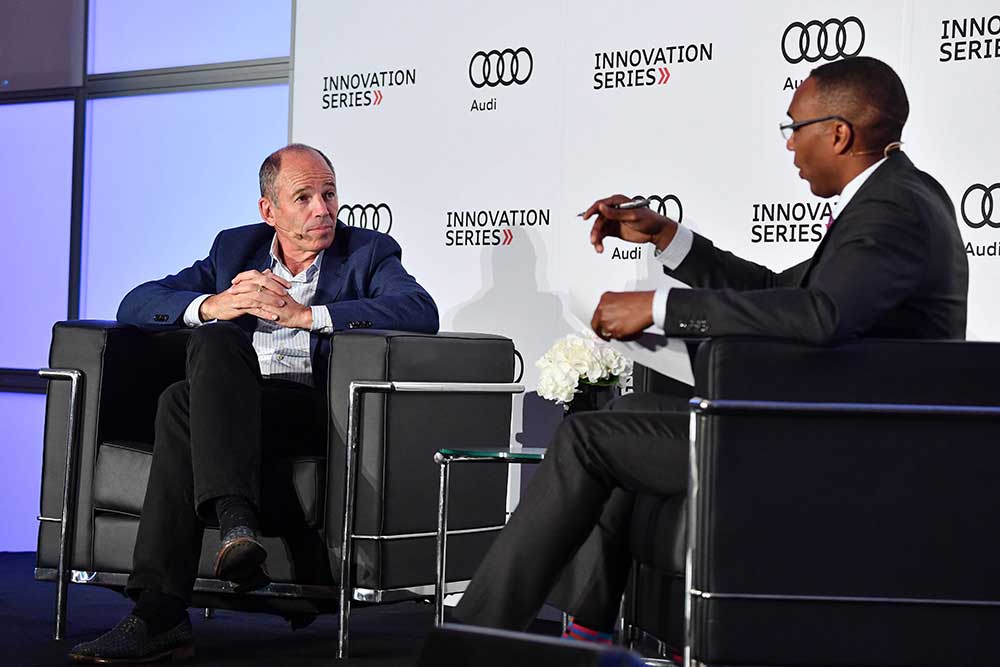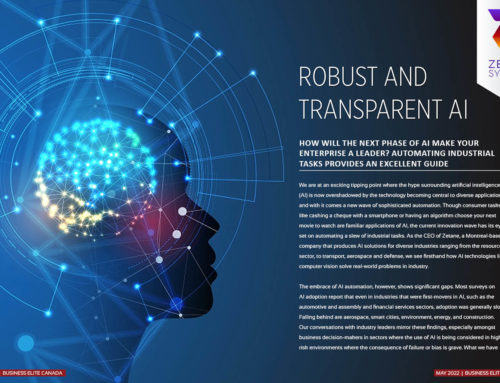Netflix Co-Founder Marc Randolph took the stage at the Four Seasons Toronto on June 5th for Audi’s Innovation Series Audi Speaks where for half an hour, the audience was privy to a once-in-a-lifetime conversation led by Dwight Drummond about what it’s like to create a once-in-a-lifetime company like Netflix.
Originally formed in 1997 in California, Netflix was the result of hours of brainstorming business ideas between Randolph and co-founder Reed Hastings during long commutes to work. “Some were horrible, some were partially good, and one was video rental through the mail. A few months later we heard about a new technology coming out called the DVD…” and the rest is history, as they say.
Today, Netflix has 125 million subscribers available in nearly 200countries around the world.
“I never in a million years thought[Netflix] would become this big and this popular,” Randolph says. “I remember five or six years in, how thrilled I was when I was doing New York Times crossword puzzle and one of the answers was Netflix, and I thought ‘We’ve made it’!
“When I look back, I am incredibly proud to have been part of creating this thing that hopefully most of you enjoy,” Randolph told the audience, adding he gets letters from around the world thanking him for Netflix—a vessel for relaxation, education, nostalgia etc. “My life’s contribution in many ways is helping people waste time,” he jokes.(By the way, his favourite shows are currently Godless and Narcos.)
When asked what is the key to his success, Randolph says perseverance. “What motivated me was to solve really hard problems. But what I’m most proud about is the fact that I stuck with it, that I didn’t give up, that I had this incredible confident that eventually I would figure it out.”
“Learn to fail quickly” was another key takeaway for both the burgeoning and sage entrepreneurs in the crowd. Netflix’s early achievement was a culture of quick testing. “We even got to the point where we could test things in a day, even if it was sloppy it didn’t make a difference because we realized that if it was a good idea, it immediately showed through no matter how poor the implementation was,” said Randolph. “The insight is it wasn’t about the single good idea, it was about trying a lot of bad ones. To make that happen you have to be willing to keep trying ,trying,trying, which means failing, failing, failing, but doing so in a quick enough way with a low enough impact way that you can recover and try something else.”
“I never accept status quo. I always believe something better can be done.”






